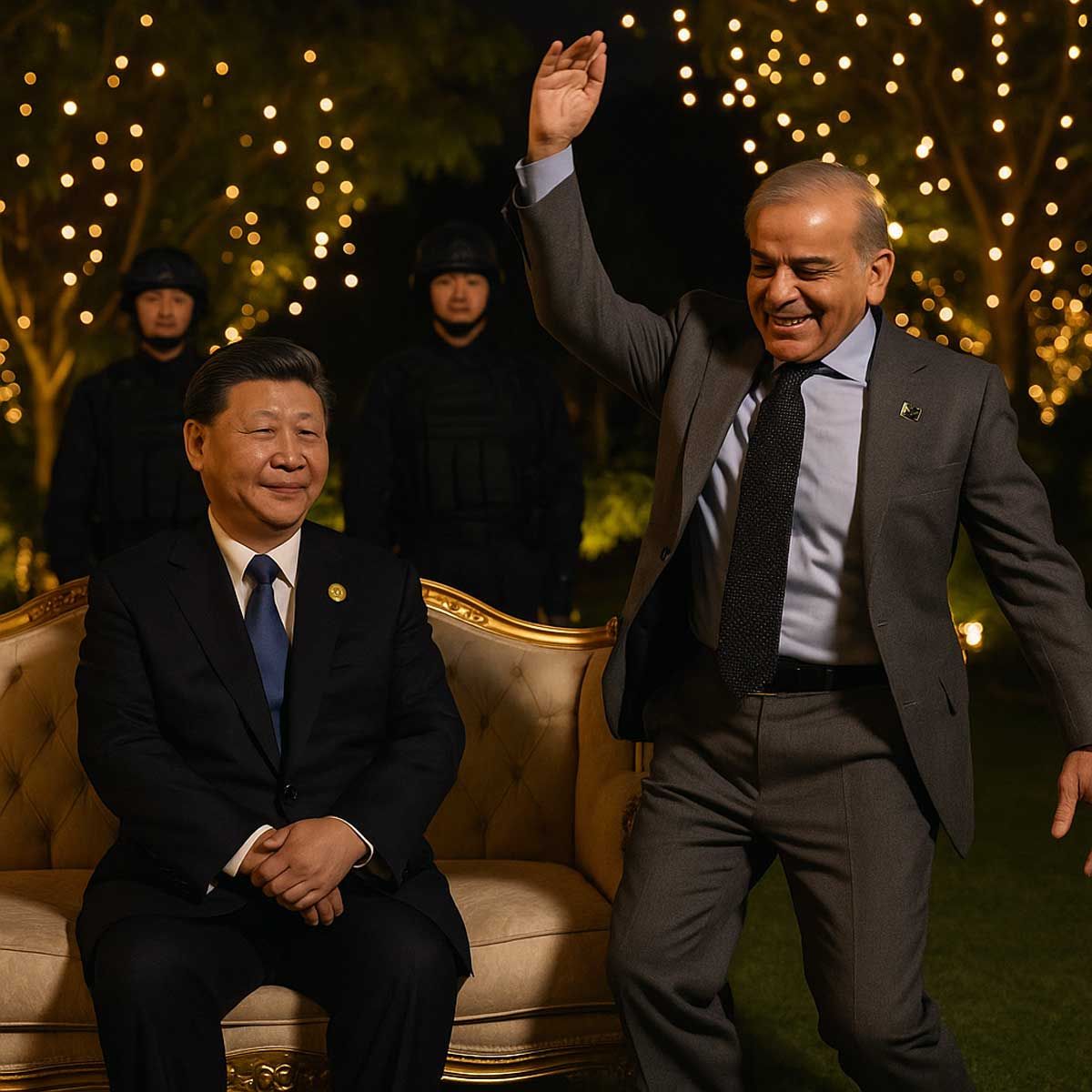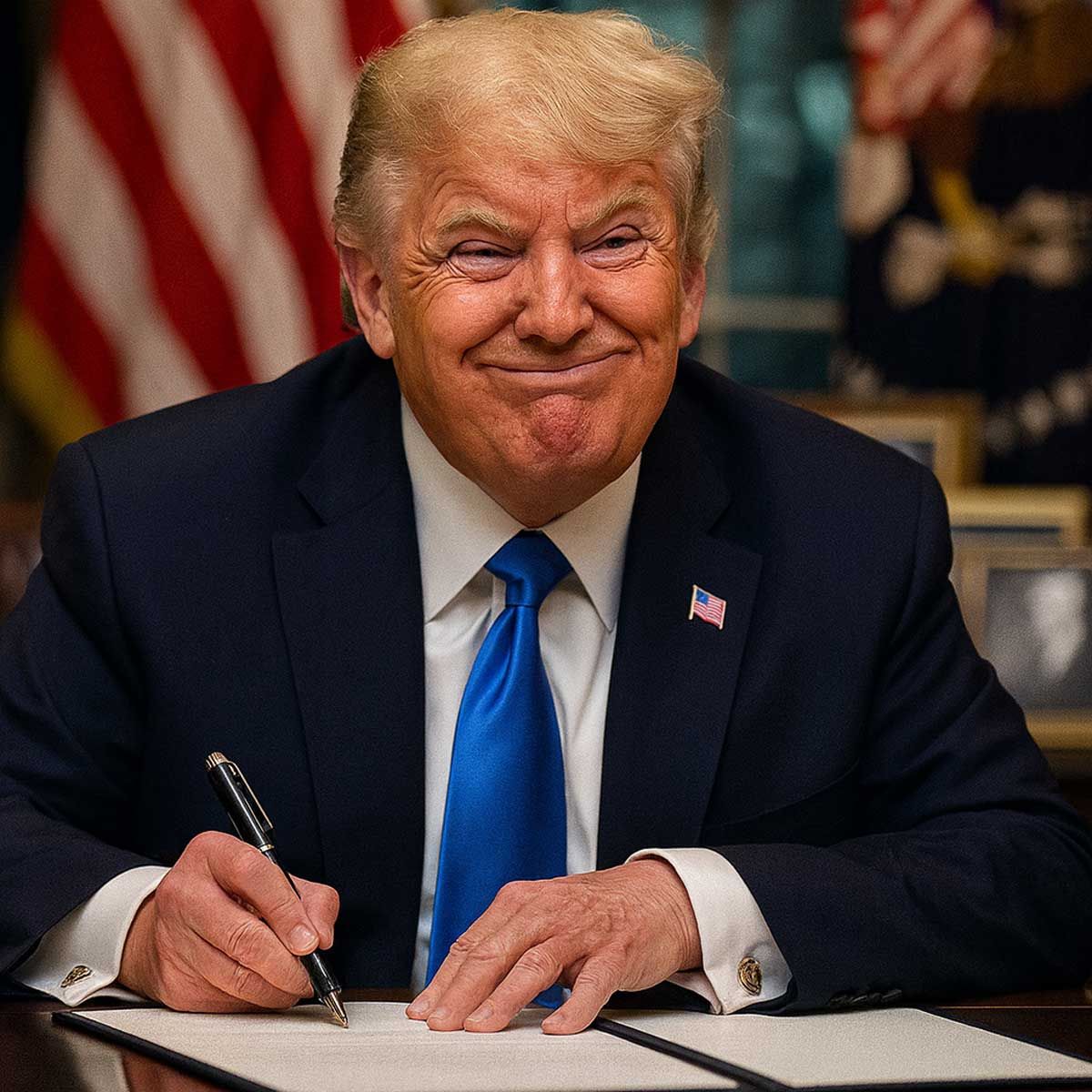Sanatan Articles
Satyaagrah
Written on
Satyaagrah
Written on
Satyaagrah
Written on
Satyaagrah
Written on
Satyaagrah
Written on
JOIN SATYAAGRAH SOCIAL MEDIA
Winning wars but losing the peace: Sri Krishna and Mahatma
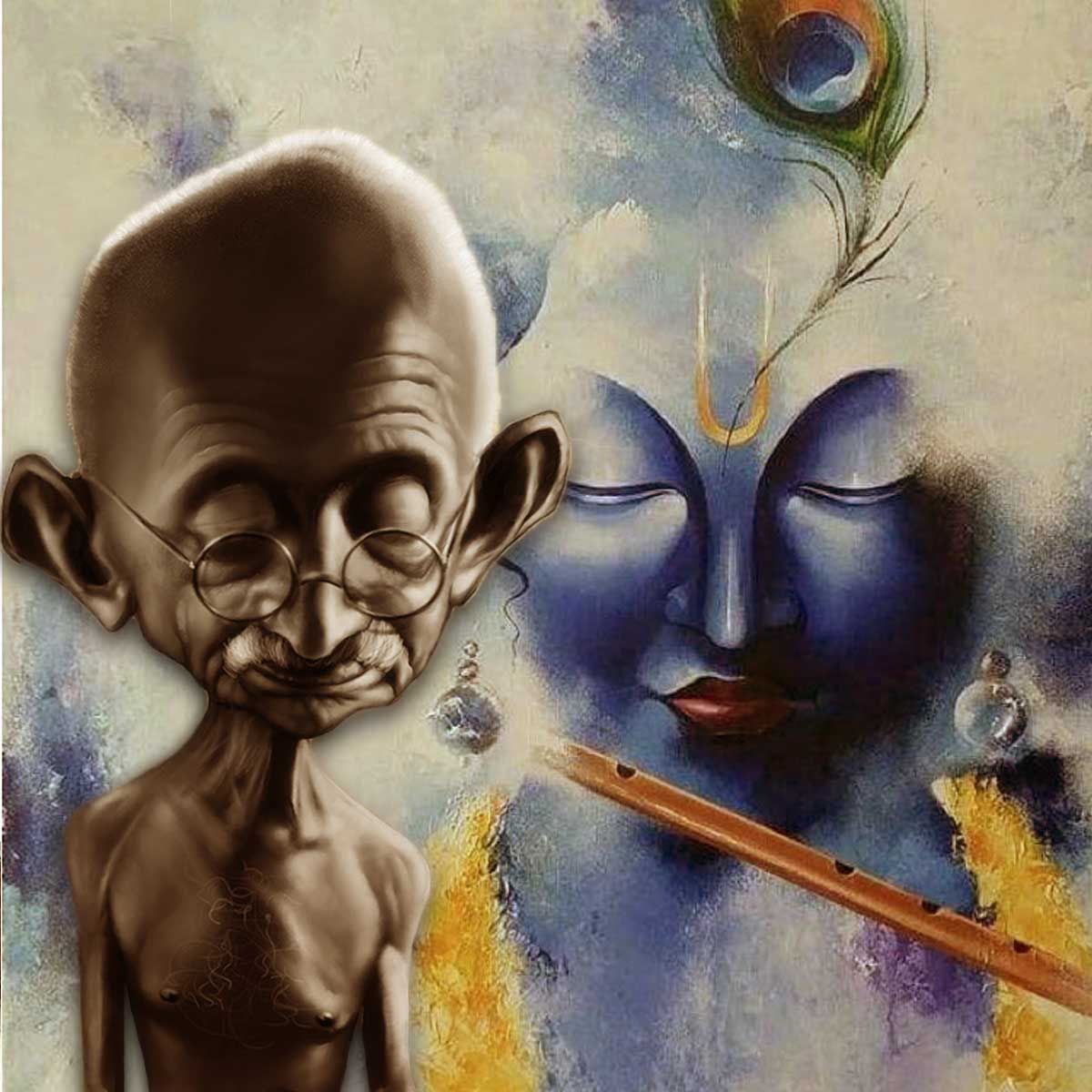
Mahatma Gandhi’s unqualified capitulationism has apparently triumphed in post-independence Bharat over Bhagwan Krishna’s unyielding terse realism in the Bhagavad Gita. Not only that Bharat has zealously sacrificed the narrative of its own bloody travails, in which its courageous men and women laid down their lives.
The awesome exploits of the bravest of the brave, the Kumaonis, is barely accorded dignified recall and the women who gave up their lives guarding Bharat’s parliament in 2001 dismayingly forgotten. In any other self-respecting country, the statues of such heroes would have dominated the skyline of their capital city.
Bharat’s faithfulness to eccentric Gandhian edicts, dismissed by even China’s treasonous lobbyist, Nehru acolyte ambassador, KM Panikkar, as a perverse misreading of the Bhagavad Gita, repudiates even courage and the universal legitimacy of self-defence. It was in Jammu and Kashmir that Bharat fought its first war after independence in 1947, to which in fact Gandhi did not object and suffered its first historic geopolitical setback, losing the peace despite being on the verge of military victory.
Britain’s India Office, its irate civil servants chafing at what even Winston Churchill repeatedly denounced as the Hindu Congress for stealing the ‘Jewel in its Crown’, plotted how to best carve up Bharat.
 |
Punjab in its entirety was to be a part of Pakistan, as the senior civil servant of the province, Penderel Moon, highlighted (in Divide and Quit). The story was spoilt by truculent Islamic zealots taking to violence and provoking Sikhs, who were previously considered potentially ambiguous about their choice of country, into retaliation.
But the British did not give up altogether, ‘fixing’ the three Christian votes in the region’s assembly and ensuring it voted in favour of Pakistan by two votes overall and Punjab’s partition ensued. In addition, all India’s Christian organisations had evidently followed London’s advice and rebuffed overtures from Jawaharlal Nehru during the negotiations for Bharat’s independence and supported the Muslim League instead.
Incidentally, Bengal was not as important strategically as the northern provinces and Gilgit Baltistan was to be forcibly seized from Maharajah Hari Singh’s legitimate representatives and handed over to Jinnah by British officers, led by Major Brown. Most of this story is ably recounted by Bharatiya diplomat C. Dasgupta (War and Diplomacy in Kashmir 1947-1948) and Narinder Singh Sarila’s unusually well-researched and evocative popular history (The Shadow of the Great Game).
The untold story is the advance planning to enable Pakistan to seize Jammu and Kashmir by force by the India Office in London, Viceroy Lord Mountbatten, in conjunction with British officers who continued to lead the armies of Bharat and Pakistan after independence.
The diabolical conspiracy, which Bharat’s amateurish Congress leadership failed to anticipate, began well before Bharat’s independence on August 15th 1947. The legal and political groundwork had been laid by the Viceroy’s proclamation, with Jinnah also insisting that rulers of the princely states would be free to choose which country, Bharat or Pakistan, they wished to join.
And the choice would not be subject to a popular vote, as elsewhere. It was clear that a popular vote in Jammu Kashmir was unlikely to favour Pakistan because the overwhelmingly influential leader of Muslims in the state, Sheikh Abdullah, had correctly inferred that his head would be the first on the chopping block if the state joined Pakistan. He had also undoubtedly sealed his own fate by rebuffing Jinnah’s blandishments to accede to Pakistan.
The fate of Huseyn Suhrawardy, who delivered Bengal to Jinnah, once Pakistan had been created, is a salutary reminder of what would have been in prospect for Sheikh Abdullah. Thus, the rationale for the Viceroy’s injunction of avoid a popular vote in the princely states was crystal clear though not even in retrospect to Bharat’s secular historiography, too busy composing paeans to Bharat’s Islamic heritage and penning horror stories of the impending disaster of Bharat’s descent into Hindu feudal rule.
As an aside, it might be noted that Jinnah also, presumably, had kept open the prospect of the wealthy princely state of Hyderabad in southern Bharat choosing Pakistan, in accordance with the principles of accession for princely rulers established by Lord Mountbatten, at his urging.
As a result of foreknowledge of his fate, Sheikh Abdullah had shrewdly decided to join Bharat though on his own terms and Jawaharlal Nehru acceded, with alacrity, to pretty much to all his demands for constitutional and legal guarantees. Jawaharlal Nehru had made the ruler, Maharajah Hari Singh irrelevant and allowed his prime minister to be treated with shocking indignity, arrested and dragged through the streets by the Sheikh.
The ambitious Sheikh had evidently hoped to inaugurate his own dynasty and apparently an independent Jammu and Kashmir nation too. It was the latter aspiration, on which he parlayed indiscreetly with the Americans about creating an independent Switzerland in the east that prompted Nehru to arrest his friend, Sheikh Abdullah, to whom he had given almost everything that had been sought.
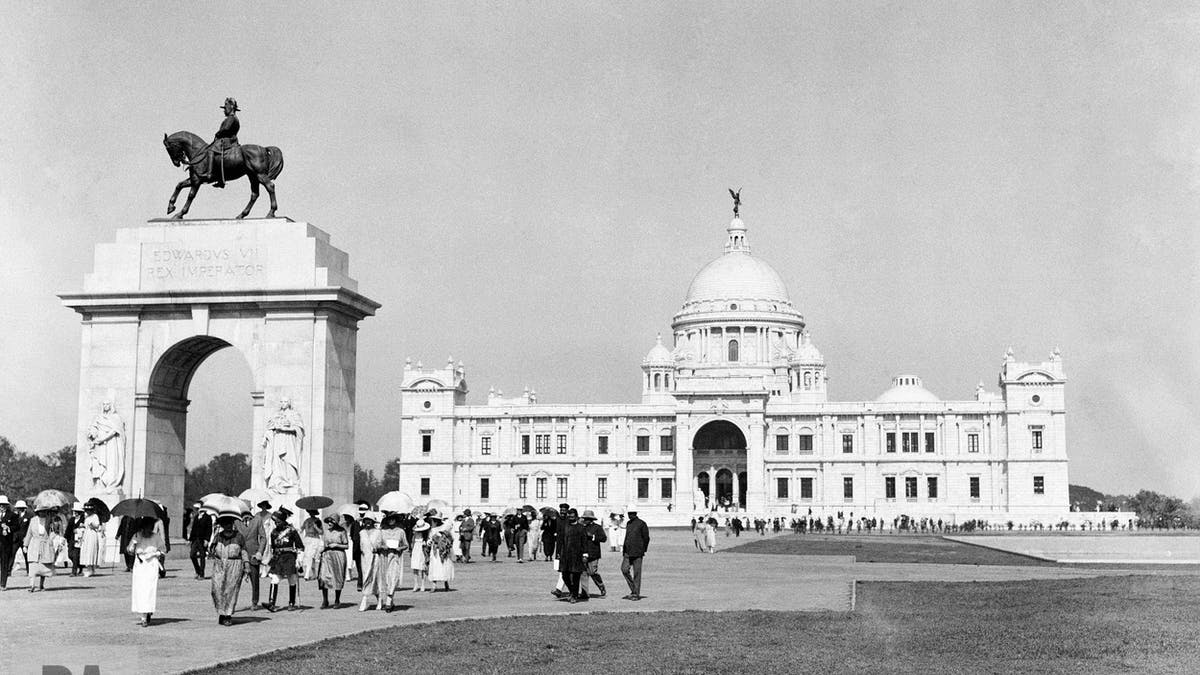 |
In the event, it was due to Sheikh Abdullah’s truculence that an invasion of Jammu and Kashmir was planned by Jinnah with cynical British collusion. The infinitely calculating Jinnah evidently thought that the recalcitrant Sheikh would be swept aside by an upsurge in local Islamic sentiment once a violent conflict had been precipitated by the Pakistani invasion between Jammu and Kashmiri Hindus and Muslims.
Jinnah expected the situation to parallel the breakdown in relationships between the two communities elsewhere in Bharat during its bloody partition and ensure Jammu and Kashmir’s Anschluss with Pakistan.
As it happened, such a breakdown in relationships did not occur nor did a popular uprising by Muslims greet the invaders from Pakistan. In fact, Jammu and Kashmiri Muslims showed no inclination to choose Pakistan even later, according to the British historian, Alistair Lamb, championing its case, when Nehru offered a plebiscite to the Pakistani prime minister, Muhammad Ali in 1954.
Memories of the depredations of 1947 and 1948 by Pakistani invaders, looting, raping and abducted women (who filled the brothels of Rawalpindi and elsewhere) were still too fresh. Knowing it was unlikely to win a plebiscite, the Bharatiya offer was rejected on a flimsy pretext, with Pakistan insisting the plebiscite administrator had to be US Admiral Chester W. Nimitz.
Pakistan hoped an US admiral would by sympathetic to its claims since Pakistan was a collaborator of the US in the Cold War and also enjoyed British support and rejected Nehru’s proposal for a neutral Scandinavian.
When Bharat mobilised hastily to expel the invading tribesmen and Pakistani regulars from Jammu and Kashmir its commanders on the ground in the state, led by then Brigadier L. P. Sen (Slender was the Thread) did not know they were going to face perfidy and betrayal by their own senior commanders at headquarters in Delhi.
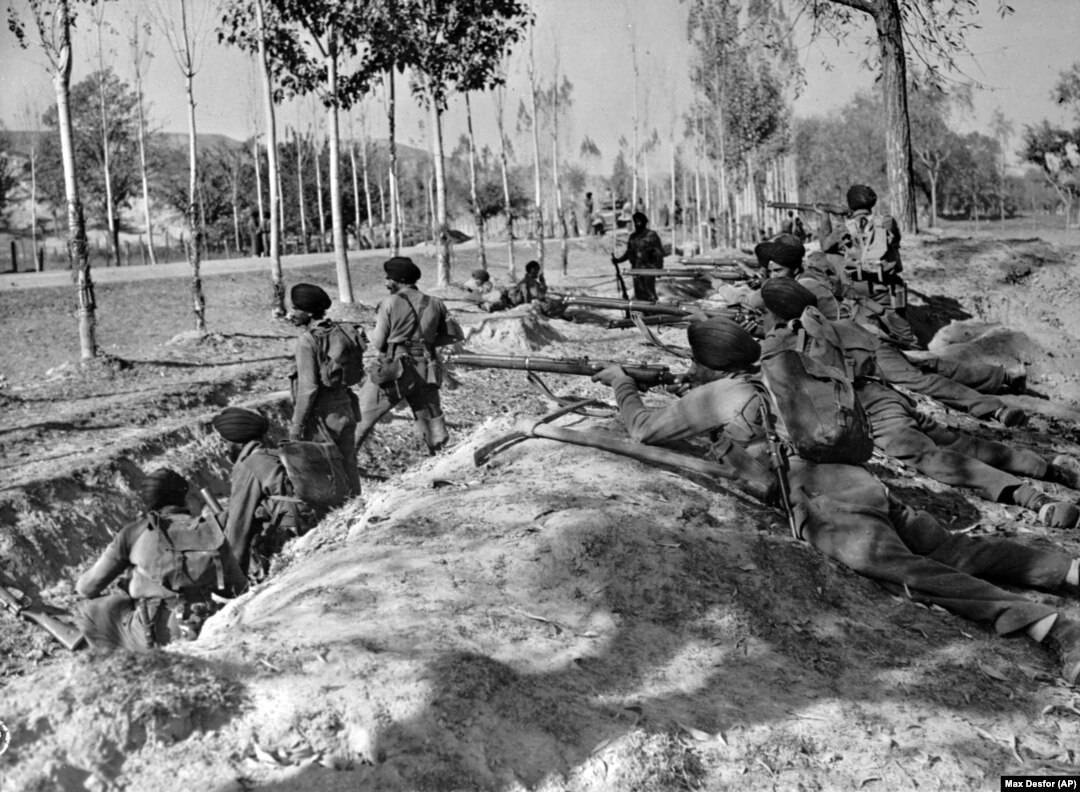 |
Bewilderingly, the exact circumstances have not been fully appreciated even today by most Bharatiyas. The Indian army not only faced the killing, pillaging and raping invaders but also interference coordinated by Britain through British officers who headed both the Pakistani and Indian armies.
Quite clearly, the two chiefs of who headed the Indian army until December 1948, Sir Robert Lockhart and Sir Roy Bucher, were almost certainly in touch with their British counterparts heading the Pakistani forces. The latter had obviously known of the impending invasion of Jammu and Kashmir, planned in the very building from which they themselves operated.
Sir Robert, the Indian chief of staff, was summarily dismissed after six months into a four-year contract, but puzzlingly another British general, Sir Roy Bucher was appointed chief of staff to succeed Sir Robert despite disquiet with the British predecessor’s suspect conduct. The British leaders of the Indian army then proceeded to thwart their own forces on the ground in Kashmir by refusing reinforcements when the Indian army was making rapid progress and advancing, denying repeated requests.
They also instigated the redeployment of experienced units that had been victorious from critical strategic locations, effectively enabling Pakistani forces to retake them, including the Haji Pir pass, from which they had been expelled earlier. Sadly, Major General Thimayya, later chief of staff in 1957, did not play a glorious role in this tragic situation, often siding with headquarters.
Quite clearly, the British officers at headquarters, directing the Indian army, did not wish it to liberate the region and possibly make the admittedly difficult attempt to restore Gilgit-Baltistan to the legitimate sovereign rule of the state of Jammu and Kashmir as well. What the British officers sought instead was a stalemate on the ground while Lady Edwina Mountbatten set about persuading a lovelorn ‘Jawaharlal’ to bring the matter before the UNSC to legitimate the deadlock sought.
Indeed, this is exactly what happened, with the UNSC-sponsored ceasefire freezing a disastrous status quo for Bharat, with the loss of historic land access to Afghanistan and beyond. Astonishingly, the plea to the UNSC was drafted under chapter 6, characterising the situation as a” dispute” instead of “an act of aggression” under chapter 7 since Jammu and Kashmir had acceded to the Indian Union legally.
Seeking to nullify Bharat’s sovereignty over Jammu and Kashmir was no inadvertent ‘technical error’, as some describe it, but an historic conspiracy that reeks of British duplicity, consistent with the Viceroy’s aim of legitimating the stalemate on the ground, and Bharatiya complicity at the highest level.
The catastrophe of losing critical areas of J&K territory continues to haunt Bharat to this day, robbed of a land and air corridor towards the northwest, with Pakistan regularly denying overflight rights. Western allies in Afghanistan have also discovered in recent years that this situation was mightily inconvenient for them too for the supply of their mission in Afghanistan, for which they had to frequently serenade a grudgingly acquiescent Pakistan.
Interestingly, the British Cabinet Office has recently ordered the Mountbatten diaries and letters between Jawaharlal Nehru and Edwina Mountbatten, for the period 1947-1948, withheld by Southampton University which had bought them, now the subject of High Court action to compel their release to the public.
Also note, once Bharatiya diplomat C. Dasgupta had accessed material on Jammu and Kashmir in London, which he quotes, they were quickly removed from public view. The long historical British campaign to secure Jammu and Kashmir for Pakistan, though the strategic rationale of an east of Suez policy ended in 1956, continues unabated, with scores of British MPs pouring incessant bile to incite support for its occupation by fundamentalist Islam.
 |
References:
 Support Us
Support Us
Satyagraha was born from the heart of our land, with an undying aim to unveil the true essence of Bharat. It seeks to illuminate the hidden tales of our valiant freedom fighters and the rich chronicles that haven't yet sung their complete melody in the mainstream.
While platforms like NDTV and 'The Wire' effortlessly garner funds under the banner of safeguarding democracy, we at Satyagraha walk a different path. Our strength and resonance come from you. In this journey to weave a stronger Bharat, every little contribution amplifies our voice. Let's come together, contribute as you can, and champion the true spirit of our nation.
 |  |  |
| ICICI Bank of Satyaagrah | Razorpay Bank of Satyaagrah | PayPal Bank of Satyaagrah - For International Payments |
If all above doesn't work, then try the LINK below:
Please share the article on other platforms
DISCLAIMER: The author is solely responsible for the views expressed in this article. The author carries the responsibility for citing and/or licensing of images utilized within the text. The website also frequently uses non-commercial images for representational purposes only in line with the article. We are not responsible for the authenticity of such images. If some images have a copyright issue, we request the person/entity to contact us at This email address is being protected from spambots. You need JavaScript enabled to view it. and we will take the necessary actions to resolve the issue.
Related Articles
- Prophecies of Jogendra Nath Mandal getting real after seventy years of his return from Pakistan
- Anuj Dhar claims that Subhas Chandra Bose was suspected of being ‘poisoned’ after ouster from the post of Congress president
- If not for Muslim appeasement, Vande Mataram would have been India's National Anthem: the history of Muslim opposition and support
- If only India’s partition chilling wound was not enough, Gandhi did his last protest again only to blackmail India into giving 55 crores to Pakistan, dragged Hindu, Sikh refugees seeking shelter in mosques to die in cold: And we call him Mahatma, not for
- The Islamic Doctrine of Permanent War: Jihãd and Religious Riot
- Godse's speech and analysis of fanaticism of Gandhi: Hindus should never be angry against Muslims
- Nehru's Himalayan Blunders which costed India dearly - Integration of Princely States
- Moplah Genocide of the Malabar Hindus, 1921: Thousands of Hindus slaughtered
- Father of the Nation! Absolutely not. Mohandas Karamchand Gandhi was not the father of the nation either officially or otherwise
- A Great man Beyond Criticism - Martyrdom of Shaheed Bhagat Singh (Some Hidden Facts)
- Indian state bans book on Mahatama Gandhi after reviews hint at his gay relationship
- Gandhi emphasized that he won't salute Indian National Flag if Charkha is replaced by Ashoka Chakra and wanted British flag added to it
- Northeast is not the Part of Pakistan because of 'Netaji': Subhas Bose and the ‘special’ case of Assam
- Ghost from the past: Unseen picture of Nehru voting in favour of partition of India goes viral
- Speech of Sardar Patel at Calcutta Maidan in 1948 busts the myth of ‘Muslims chose India’ and is relevant even today













